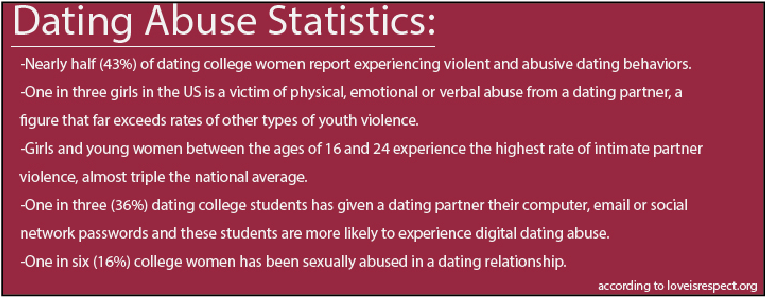Washburn promotes healthy relationships
November 5, 2017
Although Domestic Violence Awareness month has come to an end, the battle for awareness of unhealthy relationships will be continuing at Washburn.
The Healthy Relationship Series is set to continue throughout the month of November, giving students the opportunity to learn about the differences between toxic and healthy relationships.
In 2010, Knowledge Networks conducted a survey concerning college students and abusive relationships in the U.S. The results showed that 57 percent of respondents said that abusive relationships are difficult to identify, and 58 percent said that they wouldn’t know how to help someone that were experiencing it anyway.
“I do not know what a good foundation would be in a relationship,” said Louis Falk, freshman criminal justice major. “I know it’s important that the people know each other, and that they have to get along with each other, but I couldn’t tell you what’s more important.”
An unhealthy relationship is defined as a relationship that is damaging to a partner’s emotional or physical well-being. A healthy relationship builds self-esteem, is emotionally empowering and is safe.
Unhealthy relationships can impact anyone, and since they generally develop subtley over time, they are oftentimes difficult to identify. Unhealthy relationships don’t just occur between romantic partners either. They can form between family members, friends and coworkers, and be just as damaging.
“People that can’t trust each other, that have issues like infidelity, probably aren’t in a good relationship,” said Alicia Muniz, junior english major. “People who can honestly say ‘I love them’ and mean it, are usually happy, in my experience.”
Common warning signs of an unhealthy relationship are belittling comments, controlling behavior and guilt-tripping. Physical abuse is the most recognizable unhealthy behavior, but often occurs late in a relationship after a toxic foundation has been laid by way of verbal and emotional abuse.
“A healthy relationship, how I would define it, is where the two parties care for each other and do things for each other just because,” said Markel Crawford, freshman business major. “They’re not trying to change each other. They’re loving each other for who they are. A toxic relationship would probably be where a person has no individuality and they’re not themselves. That’s toxic because you can’t live your life that way.”
The first step to fixing or leaving an unhealthy relationship is to identify it. Washburn offers counseling to all students through Counseling Services and its victim advocates readily available on campus. Counseling Services can be reached at (785) 670-1470.



